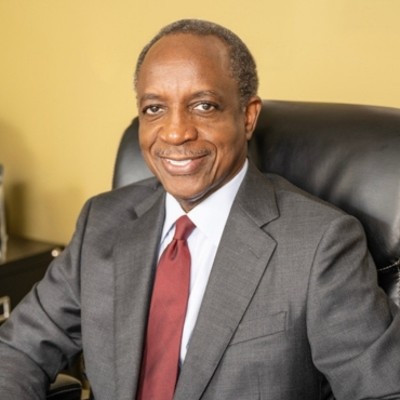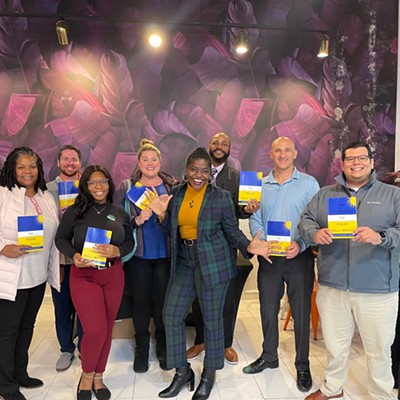In his seminal 1970 bestseller Future Shock, Alvin Toffler predicted a “shattering stress and disorientation” would come over Western society as people found themselves unable to process too many changes in too little time.
Forty–something years later, the future is here. While our “collision with tomorrow” hasn’t sent us skidding off into the ether just yet, the rapid increase in technology, communication and environmental chaos presents a confusing and frightening view of what could befall humanity sooner rather than later.
But former Vice President and Nobel Peace Prize winner Al Gore believes knowledge is power. His new book, The Future: Six Drivers of Global Change, picks up where Toffler left off by identifying the forces shaping our tomorrow — and showing us our destiny isn’t written just yet.
While things may look dire for our inert and often petty species, he writes, we “can and do change readily in response to the incentives we establish as a basis for civilization.” In other words, the future is still up to us.
Connect had the honor of speaking with Vice President Gore about The Future in advance of his appearance at the Savannah Book Festival on Saturday, Feb. 16.
Let’s get right to it: Are we doomed?
Al Gore: [laughs] No, no, I’m an optimist. I believe that even though there is some danger involved with some of these large trends, there are great opportunities, and if we rise to the challenge we can make the future very bright indeed.
One of the ideas discussed in your book is the notion of the “global mind” that comes from being able to share information so readily. What are the downsides to our constant connectivity?
Al Gore: Well, there are threats to privacy and data security, and there are increasing threats to business information and even national security. Many large businesses have been hacked. In China for example, cybercriminals have used the internet to steal information and money.
We have a kind of stalker economy with businesses tracking people on the internet and selling the information. If you go to Dictionary.com to look up a word, they’ll put 315 small computer programs on your device or computer that are capable of tracking your activities on the internet and then they’ll sell that information. I think that’s wrong and I think people need more protection.
What is the single most important policy that needs to be implemented?
Al Gore: We need protection for privacy. We need better programs to protect data security for business and government. And we need to empower people to protect themselves. But I hasten to add that all the benefits of the internet have to be taken into account alongside these new hazards.
You caught a lot of guff recently over the sale of Current TV to Al Jazeera. How will media change in the future?
Al Gore: I hope we’ll see a continuation and acceleration of internet forms of journalism and investigative reporting. I’m very optimistic of the benefits to the U.S. of having Al Jazeera on the TV dial. They do an excellent job, they’re widely respected, there are no commercial interruptions, and it’s a very talented group of professional journalists winning awards in country after country. It’s going to be a good addition.
What are the biggest ethical dilemmas of the future going to be?
Al Gore: Well, some of the choices we have to make in the field of genetic engineering have very large implications. We have a habit of focusing on short–term gains at the expense of the long term. And yet, new revolutionary discoveries in genetics have made us the principle agent of evolution.
If we were to focus on short–term gains by modifying the genetic makeup of people without the adequate consideration of the long–term risks and harms, that would not be a wise course to take.
No argument here. Do you see that as something that would have to be legislated or can people’s minds and hearts be trusted to do to the right thing?
Al Gore: I think both are important, but ultimately, there needs to be some legislative safeguards. But one of the other trends I describe in this book is the emergence of a truly global economy, and one implication of that new development is that national legislation in one country is not sufficient to safeguard the future if the activities that are causing problems simply move across national borders.
Could we really get, say, China to comply with a global set of environmental standards?
Al Gore: There are actually some positive signs that China is developing a strong environmental ethic. There are troubling signs as well, but China is now facing political unrest that is in part caused by the horrible pollution that people have to put up with there.
Last week, on a scale of air pollution going from zero to 500, in Beijing the air quality was 755. And admissions to hospitals for respiratory problems quintupled.
People there are demanding more environmental protections. The government had instituted a cap–and–trade system for CO2 emissions in two cities and five provinces and has declared that it’s a pilot for a nationwide system two years from now.
They are investing heavily in solar and wind energy and smart grids and fast trains. And yet, they are still opening a new dirty coal plant every 10 days or so. They have a choice to make and so do other nations.
You write about the role of work changing for Americans in the future. How do you see that playing out?
Al Gore: Advanced automation is confronting us with serious challenges to the nature of work. In the past, we always found that new technology and automation ended up creating more jobs than were displaced.
What’s different now is the presence of artificial intelligence and increasingly smart, interconnected machines and devices and computer programs that don’t just extend our physical capacities but also our cognitive functions. So investments of capital in new technologies like these end up displacing a lot more jobs than in the past.
Some of the new jobs that will appear will involve public goods: We need more teachers, we need more mental health care workers, we need more environmental clean–up and other activities that are not as easy to fit within the product–making sector. So some of these activities are really going to require us to rethink the prevailing hostility to government.
How about more farmers? How do you see food supply changing in the future?
Al Gore: The mechanization of agriculture eliminated the vast majority of farm jobs long ago. We’ve gone from 90 percent employment in agriculture to only two percent today, with more food being produced more cheaply in the process.
But the reliance on chemicals, synthetic nitrogen fertilizers and monocultures has brought new risks. Many are responding by moving back towards crop rotation, natural fertilizers, natural pest management and the kind of organic approaches that consumers are expressing a demand for. So yes, we are seeing that movement.
Do you see a return to sustainability as a prevailing philosophy rather than the short–term corporate mindset of bigger profits every year at the expense of resources?
Al Gore: [sighs] Well, we’re on the cusp of change. At present we’re still influenced heavily by the corporate agendas that come from the legacy industries of the past. And that’s not all bad — I don’t want to make them villains — but it’s true that the new commitment to sustainability is leading toward new models of smaller scale agriculture, different kinds of manufacturing with 3–D printing, an emphasis on craftsmanship and new appreciation for sustainability.
Alvin Toffler’s book Future Shock predicted a mental confusion from so much change so quickly. Are we in future shock right now?
Al Gore: I met with Alvin Toffler back in the ‘70s along with [bestselling Megatrends author] John Naisbitt and many other futurists, and I think that they were prescient in seeing some of these trends. They have evolved, and the momentum of change is much more powerful today. But much of what they saw is indeed unfolding before our eyes.
Speaking of prescience, many of the predictions about climate change you wrote about in An Inconvenient Truth have come to pass. Do you feel vindicated or just frustrated that not enough has been done to stem the tide?
Al Gore: I do wish more had been done. And I hope more will soon be done. I remember vividly being criticized for predicting that ocean water might flow into the World Trade Center Memorial site — many ridiculed that idea. But at the end of last October, that happened.
The storms have gotten stronger, the droughts have gotten deeper, the floods have gotten bigger, the Arctic ice cap is now half gone and the rest is disappearing. The sea level is rising.
Yesterday in Australia, they had two and half feet of rain in Queensland. In my home city of Nashville, neighbors have lost their homes and business because they didn’t have flood insurance because there had never been flooding in those areas before…
Wait, you told me we weren’t doomed!
Al Gore: Look, these things are happening and they will continue to happen. But the worst of it can still be avoided and must be avoided. We have to stop putting 90 million tons of global warming pollution into the atmosphere like it’s an open sewer.
What can average citizens do to be change agents of the future?
Al Gore: First of all, learn about it and you’ll find the best ways that fit in with your own lifestyle. Then connect with others who share your point of view. The positive trends are gaining momentum and there are many legitimate reasons for hope. The place to start is fixing our democracy and correcting the distortions in markets so that we can use the powerful tools of democracy and capitalism to shape our future.
We have work to do. As the old saying goes: “Early to bed, early to rise, work like hell and organize!”
Savannah Book Festival
Al Gore
When: 10:15–11:15 a.m., Saturday, Feb. 16
Where: Trinity Methodist, Telfair Square
Cost: Free
Info: savannahbookfestival.org



























